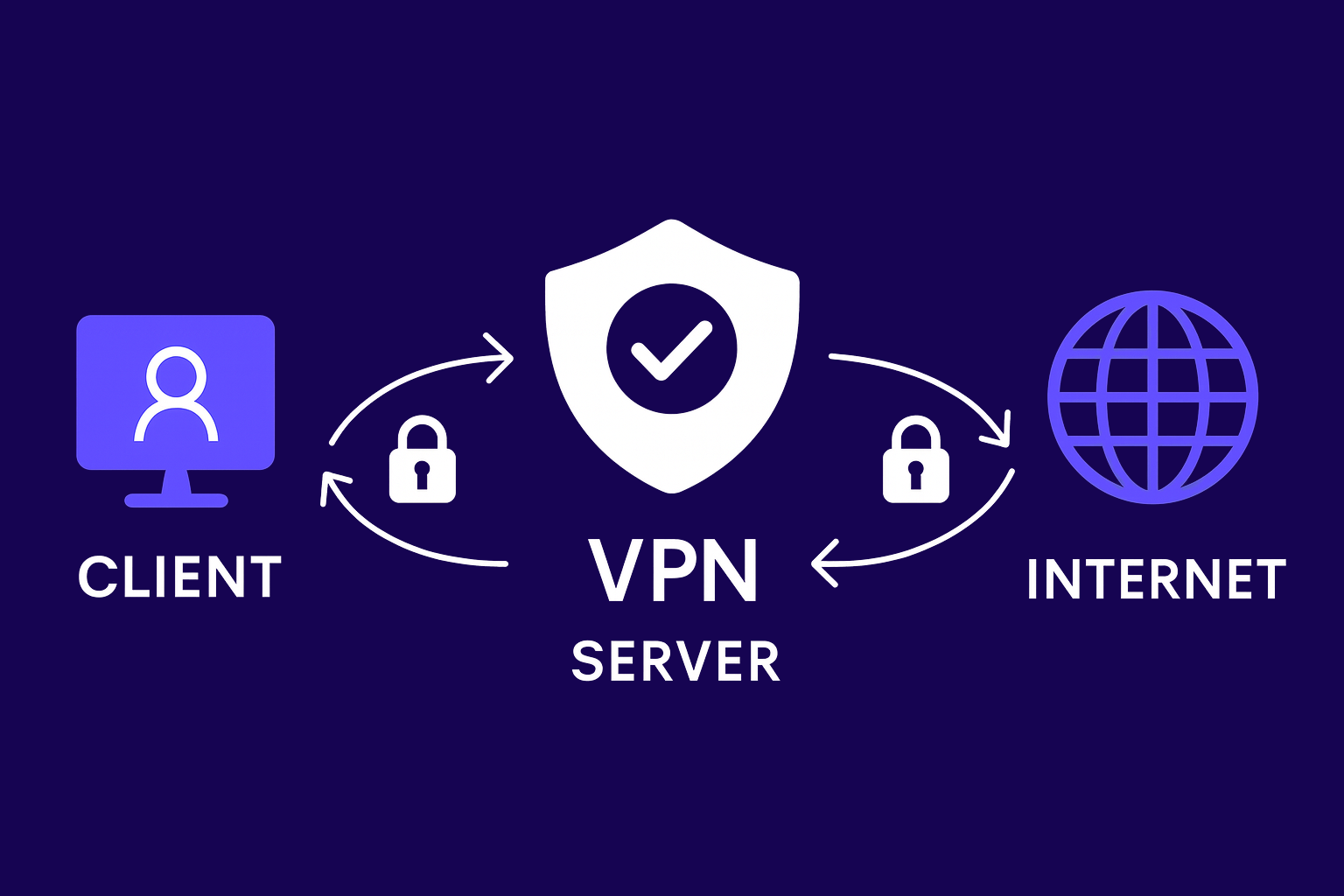
This article will show you how a residential VPN works, why residential IPs reduce blocks and CAPTCHAs, its most common use cases, and how to pick the best VPN in 2025.
A fast and modern VPN protocol which is well know for its simplicity and performance when compared to other VPN protocols. Wireguard is also easier to setup and operate.
A residential VPN routes your internet traffic through a VPN server that uses a real home IP address from a consumer internet provider. To websites and apps, you look like a normal household connection, not a data center. That usually means fewer blocks and less friction.

Our residential VPN servers use WireGuard, which is a modern and lightweight protocol with strong encryption that delivers fast speeds and quick reconnects compared with older protocols.
It’s the IP your home internet provider assigns to your connection. If you check “What’s my IP?” while you are not connected to a VPN, that number is your residential IP.
Because it comes from a consumer network and reflects everyday household use, many sites treat it as more trustworthy and lower risk. Also, if a VPN presents this kind of address, your traffic matches “normal home” patterns, so pages tend to load without extra hurdles and streaming services are more likely to just work.
Banks and checkout systems scrutinize data center ranges. A residential IP appears routine, which can reduce CAPTCHAs, extra 2FA prompts, and temporary holds during legitimate logins and purchases.
Your ISP can see you’re using a VPN, not where you go. Websites see the VPN’s residential IP instead of yours, which curbs simple IP-based profiling and ad tracking.
Select a residential IP in the permitted country to reach your usual catalogs. Home-style addresses are blocked less often, so playback starts promptly and remains steady. Follow platform terms.
Securely reach company apps and file shares from anywhere. Residential exit IPs often trigger fewer automated checks, keeping sign-ins and sessions stable.
End-to-end encryption shields logins, payments, and messages on public or shared networks. The residential IP looks like ordinary home traffic while the tunnel keeps information private.
If sites are restricted in your area, routing through a residential server in another region can restore access.
If you want smooth streaming with no fuss, you should definitely opt for Verizon Residential VPN since it’s the best streaming. It reaches the major platforms reliably, holds 1080p/4K during peak hours, and reconnects fast. We sell and support it directly, so picking the right node is very easy.
Besides Verizon, Comcast Residential VPN and AT&T Residential VPN are also very strong choices. Comcast is great for busy homes with simple apps and steady performance across multiple devices and AT&T shines when low latency matters.
All three options pair fresh residential IPs with stable servers over the WireGuard protocol, so your traffic looks like normal home browsing and your streams stay fast and consistent.
Speed is not just a download number. A connection feels fast when latency is low, throughput holds steady over minutes, and the protocol is efficient. WireGuard usually connects faster and uses less CPU than older options, which also helps battery life.
When you judge a fast VPN, look for quick handshakes under two seconds, stable latency during busy hours, and sustained 4K without stutters in the evening. We sell residential VPNs built on the WireGuard protocol, which is designed for speed with smart routing and fresh residential IPs, so streams and apps stay smooth when it matters.
A VPN for privacy has two jobs. It must protect your data in transit and it should avoid attracting unnecessary scrutiny. Residential VPNs do both. Strong encryption shields your traffic, and the residential IP context blends you into normal home activity. That reduces basic IP-based tracking, cuts CAPTCHAs and extra checks, and keeps sessions stable across everyday apps. So whenever privacy or account stability is your priority, our residential VPN is built to help you.
Real residential IPs: Pick a provider with verified and fresh residential pools. This helps you look like regular user on the web, reduces simple blocks and CAPTCHAs, and keeps sessions stable.
Speed that holds at peak times: If you want quick connects under two seconds, have low latency and sustained throughput that can keep 1080p or 4K running without drops, always go for the WireGuard protocol.
Locations and apps you actually use: Make sure the countries you need are covered.
Privacy you can verify: Look for plain, no-nonsense policies: minimal logs, clear IP replacement procedures, and transparent server status pages. Here, at Anonymous Proxies, we don't log anything.
Helpful human support: Be sure that you look only for providers that are available everytime you need them and have real humans who are there to help you, not useless bots.
We offer WireGuard residential VPN service built around all of these points, so you get fast, private, and consistent streaming and browsing whenever you need.
As you've learned in this article, a residential VPN is the best combination of security and authenticity. Since our VPN uses the WireGuard protocol combine with the residential authenticity, it will always be the perfect choice for stable streaming, fewer CAPTCHAs, private browsing, remote access and unblocking when needed.
If you need help to set up your VPN or have any question related to proxies or VPNs in general, don't hesitate to contact our support team. Also, if you want more details about VPNs, be sure to check our VPN vs. SOCKS5 proxies article.
@2025 anonymous-proxies.net